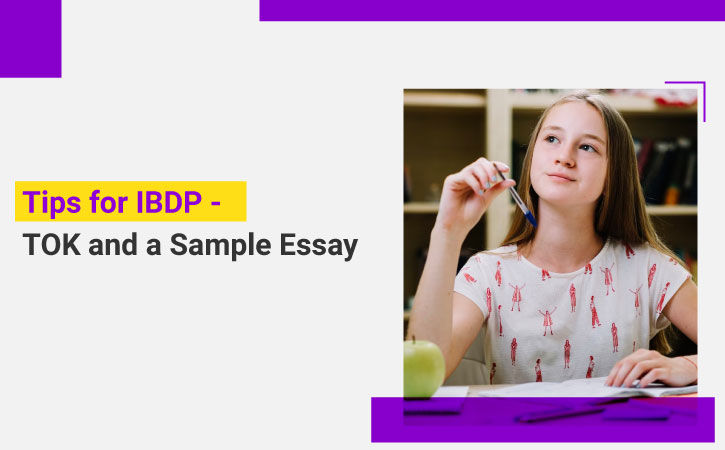

The International General Certificate of Secondary Education (IGCSE) is a well-known international certificate that is required before starting pre-university studies. It is the University of Cambridge’s registered trademark. IGCSE has a total of 70 courses available. Students can choose from a minimum of 5 to a maximum of 14 subjects. However, English, Mathematics, and Science are the most common and required subjects for students.
Most students strive for an A* in all of their subjects and take many different paths to do so. Now that you know about the exam, let us learn about the tips to ace the IGCSE:
You might find yourself studying a day before your mock test or class test. You’re frantically flipping through your textbook, your review guide, your notes, and what not for just trying to cover everything you can. In the limited time available, deciding what to focus on and what to skip can be difficult. You understand that this is not a long term solution. You plan to study more thoroughly next time, but when the next test comes around, you repeat the same thing. Does that sound familiar?
Here’s what you should do. Change your mindset. When you successfully complete the above exam and begin studying for the next set, remember to keep the end goal in mind. All of the studying and tests are leading up to Cambridge’s final exams. You aren’t really preparing for the upcoming test or prefinal. You can do well in your school exams all you want, but it won’t matter if you don’t perform well in the final. Everything is working towards a common goal. Keeping this in mind can help you study more effectively.
You probably have a textbook that you use in class and that you study from at home as well which is recommended by your school. However, it doesn’t harm you, if you consider other sources. The concern is that Cambridge creates the syllabus, which is then used by multiple publishers to create textbooks. Each book may take a unique approach to topics and material organisation. Some books place less emphasis on certain topics or even skip them entirely. If you only use that one textbook, you may find yourself clueless and with gaps in your understanding. Studying from other sources like taking an IGCSE tutoring helps you fill those gaps in your knowledge and give you a better grasp of the subject and individual topics. IGCSE tuition also may explain topics that are already in your books differently. This difference in explanation from the IGCSE tutoring may help you to better understand a topic you thought you already knew, leaving you more informed overall. Different sources like IFCSE tutoring also have more interactive sessions, and practice questions for you to practice with so you have a wider range of knowledge. These other sources can also include:
You can study 6 or 8 hours a day but after you study, you should put your understanding to use. You should do past papers on a regular basis to monitor your progress and ensure that you are studying the most important topics (topics that frequently appear in the exam). It’s similar to a real-life simulation or final-day training. Because you haven’t covered the entire syllabus yet, doing past papers may be difficult at first. Exam questions for each chapter are usually included in most textbooks, and you should answer them. You should also look for websites that provide previous questions organised by chapter or topic and complete them.
However, you should study complete past papers and try to figure out the question patterns and format. The majority of the exam questions do not ask for content from the book, but rather ask you to apply what you’ve learned to answer a question or solve a hypothetical situation. In comparison to other Indian boards, IGSCE uses a different type of question paper. As a result, studying the material requires a different approach. Practicing questions from previous exams can help you improve this skill. You’ll also notice that many of the questions have the same format as the previous ones, but with different topics and examples. If you’ve studied past papers, these questions should be easy to answer.
However, you are advised to avoid trying to cram too many papers into your timetable. You should study the material and practise questions in a balanced way. For tests and mocks, your teacher may use questions from previous papers. If you know the paper, you will do well; if you do not, you will do poorly. This will not provide you with an accurate picture of your capabilities and may lead to either overconfidence or depression!
In school exams, you’ll see a lot of the same questions. You don’t want to be penalised for getting the same exact answer to the same exact question. You want to get credit for using what you’ve learned to answer the question.
Even if it’s difficult to concentrate, you should pay attention in class. Every minute of your time is valuable, so while you’re already in class, take advantage of the opportunity to listen to your teacher and absorb the material. It can be used to introduce a new topic or, better yet, to review something you’ve already learned. Another benefit is that it demonstrates to the teacher that you are a student who is interested in the subject, and they will be more willing to assist you because they believe your doubts and questions are genuine. They are also more likely to give you good grades if you do good work, which can help with tests or teacher-marked assignments. Finally, it is impolite to ignore a teacher who is teaching!
Learn to self-study the subject material. Teach yourself to read, reread, and comprehend what is written in a textbook. To grasp a difficult concept, use other resources as suggested in Tip 2. Outside of IGCSE, being self-sufficient is a valuable skill. Being self-sufficient is advantageous because it forces you to accept the possibility that your journey will not be perfect. Although you may have some fantastic teachers, not all of them will be brilliant and enthusiastic. You may have a school that is extremely efficient or poorly managed, and it becomes an adversary rather than an ally. You can, however, take control of this journey if you are a self-motivated and independent learner. The IGCSE is not so difficult that it cannot be completed without assistance. There are numerous useful online resources available, and it is possible to learn on your own. Request assistance, when necessary, but the satisfaction of learning something on your own will be well worth the extra effort.
Staying ahead of your class, especially in subjects where you struggle, is a good idea. This does not imply that you should take lots of notes, reread your chapters several times, or attempt plenty of past-paper questions. It could be as simple as reading from the textbook to get a sense of what will be covered the following week. This can assist you in comprehending what the teacher is saying. You can be prepared with questions about difficult concepts by reading ahead so you can ask your teacher during the lesson. It can also assist you if your school is behind on its syllabus and is rushing to complete everything before the deadline. You’ll be able to tell if you’ve given yourself enough time to learn each topic.
Here’s a quick tip to help you better manage your studies: Each of your 8 subjects’ syllabuses may appear to be enormous and overwhelming. It may appear that there is an endless list of facts to remember. Instead, think of each subject’s section as a collection of different concepts with additional details. Then you can focus on learning the concepts first, and then gradually add in the “extra details.” After doing so, you may begin to believe that you can easily answer most question papers. You’ll also be less stressed because you won’t be cramming as much information into your head.
It’s fine to get A’s and B’s, but aiming for only those grades isn’t a good idea. Everyone should aim for A* grades in their subjects; even if you don’t get all A*s, you’ll know you gave it your all, and you might be surprised! To stay motivated, I created my own set of higher Grade Thresholds that pushed me to achieve higher grades rather than following the real ones. Grade Thresholds and how they work in IGCSE are important to understand, but they aren’t really necessary until after you’ve completed all of your exams because they change every time. Do not settle for long periods of time because you have time to do better if you have time to settle.
If you are planning to study abroad and searching to match your profile with the best suited university, Experts at Manya – The Princeton Review have gathered important information of top Universities from abroad. Surely, this information will help you narrow down your quest for universities.
You can access accurate & authentic information related to rankings, application fees, average tuition fees, cost of living, scholarships, latest updates, and much more from more than 1000+ universities. You may also search for universities by name, country, or courses in common specializations, such as Physics, Finance, Business, Language and Culture, Agriculture, Environmental Science, Computer and IT, Media and Communication Marketing.
Manya – The Princeton Review offers end-to-end study abroad services encompassing admissions consulting services, test preparation, English language training, career assessment, and international internship opportunities to study abroad aspirants.
For more information, call our Study Abroad Helpline 1800 102 4646.
Book your Free Counselling Session now!
Tips for IBDP-TOK and a Sample Essay